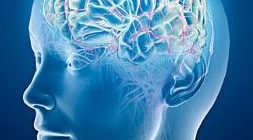Antidepressants are among the most prescribed drugs in the US, so it’s important to understand what they do and how they can affect a person’s mood, mind, and body. This class of psychotropic drug (a licensed psychoactive agent that affects the brain and its chemical processes) is most often used to treat various forms of depression, as well as other psychiatric disorders like anxiety, phobias, and eating disorders such as anorexia nervosa and anorexia bulimia. It is best to check out counseling rexburg for integrated care that will improve the mental, physical, and emotional well-being of an individual. All classes of antidepressants have some common side effects, including nausea, mood swings, seizures, headaches, weight gain or loss, and sleeplessness or fatigue. People with pre-existing conditions like blood disorders, diabetes, kidney and liver conditions, and cardiovascular complications must check with their healthcare provider before taking any antidepressant.
Antidepressants are among the most prescribed drugs in the US, so it’s important to understand what they do and how they can affect a person’s mood, mind, and body. This class of psychotropic drug (a licensed psychoactive agent that affects the brain and its chemical processes) is most often used to treat various forms of depression, as well as other psychiatric disorders like anxiety, phobias, and eating disorders such as anorexia nervosa and anorexia bulimia.
Antidepressants are designed to regulate the activity of serotonin and noradrenaline, neurotransmitters involved in regulating moods. Antidepressants either boost or prolong the action of these neurotransmitters, thereby controlling the onset of mood swings and depressive states. These drugs usually take around 1–2 weeks to take effect. Antidepressants must be taken only on the advice and prescription of a licensed psychiatrist.
The most commonly used groups of antidepressants are:
Selective serotonin reuptake inhibitors (SSRIs)
Tricyclic and tricyclic-related antidepressants (TCAs)
Monoamine oxidase inhibitors (MAOIs)
Side Effects
Psychiatrists typically prefer prescribing SSRIs over older forms of antidepressants like TCAs and MAOIs. But, like any drug with active chemical substances, all of these antidepressants have a range of side effects.
SSRIs are the most commonly prescribed antidepressants and regulate the action of serotonin in the brain. Its most common side effects include suicidal thoughts and behaviors, anxiety, agitation, and aggression. Studies in clinical psychiatry also indicate other side effects like sexual and cognitive dysfunction, significant weight gain, and hormonal fluctuations.
Many people also experience issues like nausea, excessive sleepiness or sleeplessness, dry mouth, fatigue, tremors, and decreased sex drive.
TCAs are one of the older classes of antidepressants and work by affecting the re-uptake of serotonin and norepinephrine in the brain. As a result, their impact is broader, and so they tend to have more side effects.
Studies on this class of antidepressants have indicated a range of side effects such as weight gain, dry mouth, dizziness, drowsiness, lethargy and fatigue, vision disturbances, and general confusion.
TCAs are generally not recommended for patients with a known cardiac condition. They can disrupt the heart rhythm and lead to cardiac arrhythmia.
MAOIs are the oldest class of antidepressants. MAOIs work by increasing the amount of neurotransmitters (adrenaline, noradrenaline, dopamine, and serotonin) produced in the brain. MAOIs have several severe side effects, especially if taken with certain foods like wine, beer, chocolate, and cheese. Some of their most common side effects include hypertension or hypotension, drowsiness, weight gain, edema, and tremors.
Combining MAOIs with SSRIs can lead to a dangerous condition known as serotonin syndrome.
People with pre-existing conditions such as chronic liver disease, blood disorders like hemophilia or thrombocytopenia, neurological disorders like epilepsy, or cardiac conditions should exercise extreme caution when taking antidepressants.
In most cases, doctors will perform a cost-benefit analysis before prescribing antidepressants. For example, if a person is suffering from severe clinical depression that interferes with their daily life, they may find the potential effectiveness of an antidepressant to far outweigh any possible side effect.






Leave a reply